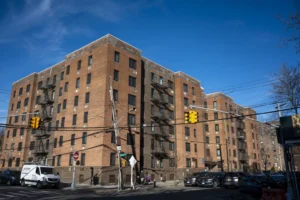Draining the Swamp
With the furor over the war funding bill, you may not have noticed that Congress did something right this week. Although it will likely threaten their tenuous hold on a majority, the Democrats pushed through legislation to further limit the influence of lobbyists in Washington.WASHINGTON — Here is what you can say about the new Democratic House of Representatives as it passes its first political milestone, the Memorial Day recess: Term limits worked.
Not the bumper-sticker brand that was popular in the 1990s and found its way into the Republican Contract With America — a pledge to “replace career politicians with citizen legislators.” The term limits that worked last November are written in the Constitution mandating that House members serve for two years at a time.
Voters in November cast off years of calcified cynicism and elected Democrats to open House seats and, more significantly, to seats in districts across the country where Republican incumbents had somehow — despite their campaign war chests and their prestigious committee assignments — managed to convince the folks back home that they deserved to be booted out. Now these voters can pat themselves on the back, for it was the Democratic newcomers who were the force behind the anti-corruption measures that are one of the signature accomplishments, thus far, of the 110th Congress.
The process of getting a lobbying reform and disclosure bill through the House last week was a messy and sometimes bitter affair. At times it turned into a test of wills between the newcomers — who’d won office in part by claiming Republicans had nurtured a “culture of corruption” — and the old Democratic guard.
Having at last regained positions of power and access to the campaign funds that flow toward them, the old-timers were reluctant to give up their ability to quietly collect “bundled” checks from lobbyists. Individual lobbyists, limited like everyone else in how much they can personally donate to a federal candidate, typically collect from many of the like-minded — say, those who want Medicare to keep expanding subsidies to private managed-care insurance plans — and deliver them in eye-popping bundles. A crucial part of the revisions the House passed as it rushed to adjourn would require that this bundling be disclosed. The Senate already has passed a similar measure, and so a final reform bill is almost certain to include it.
In all likelihood, this will spawn new loopholes. All political reforms have a way of doing that. Special-interest money oozes into politics from every crevice it can find.
But in a real sense, the vote to shine a disinfecting light on this attribute of the “culture of corruption” was a vote to make it harder to maintain the new Democratic majority. That is why it is so significant.
A clear — and frightening, for politicians — choice was made between keeping in place a shadowy system that benefits incumbents or replacing it with public disclosure, which is more likely than not to dry up some funds. The trade-off is supposed to come in the form of greater respect for Congress in general with thanks to Democrats, in particular, for cleaning things up.
But this sort of civics-book idealism doesn’t necessarily win elections. Not when millions of dollars worth of campaign advertisements are saturating the airwaves and public discourse is reduced to dueling sound bites.
The draining of the swamp, as House Speaker Nancy Pelosi likes to put it, is a grand experiment. Since January, the House and Senate have both gone far toward dismantling the infamous K Street Project, which was engineered by former House Republican leader Tom DeLay. It married Capitol Hill with Washington’s lobbying corridor in a partnership of campaign money, access and influence intended to keep Republicans in power indefinitely.
Now gifts and travel from lobbyists are largely banned. Lawmakers under the new legislation would be barred from pressuring trade associations and other business groups to base their hiring decisions on partisan affiliations — a tactic Republicans had used to seed party loyalists into the K Street lobbying complex. Lawmakers must disclose when they are negotiating for a job with any private entity, though the House so far has balked at extending the waiting period from one year to two before a departing lawmaker can work as a lobbyist.
As the foundations of the K Street Project crumble, brick by brick, it is easier to see how ingenious the system was for maintaining political power. What, then, is the new Democratic majority to replace it with?
Democrats seem to be banking on the power of their ideas and their effectiveness in acting for the broad public good. In contemporary politics, this has a certain novelty to it. But it has the old-time virtue of a campaign promise kept.
Marie Cocco’s e-mail address is mariecocco(at symbol)washpost.com.
© 2007, Washington Post Writers Group
Your support matters…Independent journalism is under threat and overshadowed by heavily funded mainstream media.
You can help level the playing field. Become a member.
Your tax-deductible contribution keeps us digging beneath the headlines to give you thought-provoking, investigative reporting and analysis that unearths what's really happening- without compromise.
Give today to support our courageous, independent journalists.






You need to be a supporter to comment.
There are currently no responses to this article.
Be the first to respond.